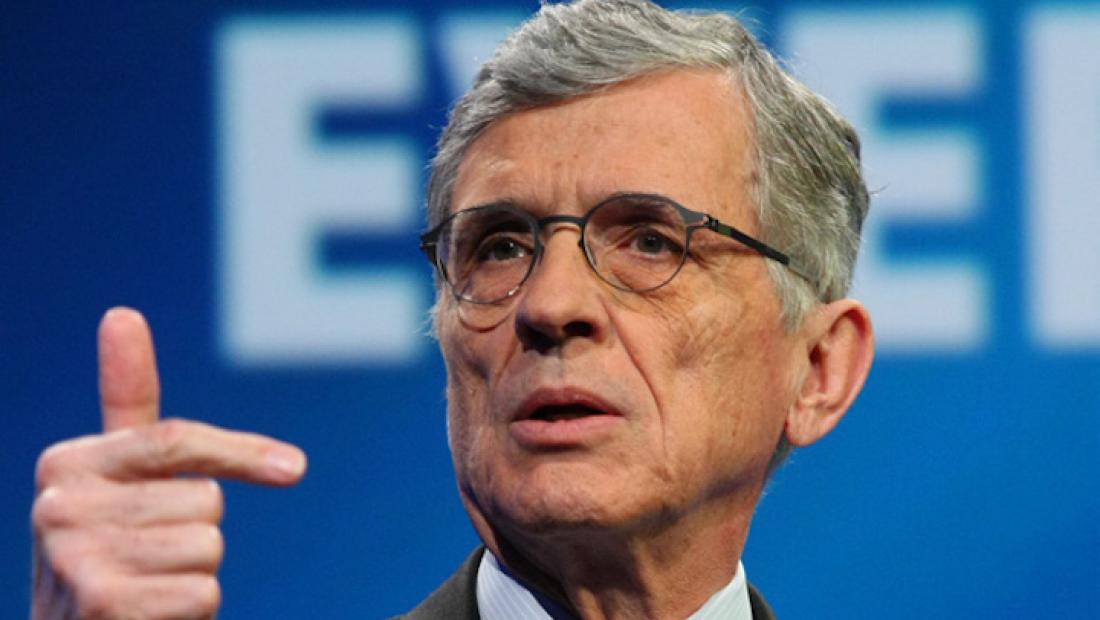Wheeler: FCC 'Bent' Rules to Help Sinclair

The smarter way to stay on top of broadcasting and cable industry. Sign up below
You are now subscribed
Your newsletter sign-up was successful
Former FCC chairman Tom Wheeler is accusing the Republican-led FCC of his successor, Ajit Pai, of bending the rules to help Sinclair heavy up, and says its proposed purchase of Tribune stations is not in the public interest.
That came in an online op ed for Brookings, where Wheeler is a visiting fellow in governance studies.
Wheeler last month on the Brookings web site wrote that the proposed $3.9 billion merger of Sinclair and Tribune was a threat to local broadcasting. He said that the "Trump" FCC has "in little-noticed decisions...been removing regulatory requirements to protect broadcast localism, shield a diversity of local voices, and avoid the establishment of a dominant national broadcaster."
Related: T-Mobile to FCC: Sinclair/Tribune Needs Repack Conditions
Wheeler renewed that charge this week in a follow-up post.
The reference to the little-noticed decisions is to the Pai FCC decisions to reinstate the UHF discount eliminated under Wheeler, which has gotten more attention since Wheeler’s first op ed, to loosen some limits on joint station agreements tightened by Wheeler, and eliminate the requirement that a broadcaster maintain a main studio in its community of license.
Wheeler says Sinclair has seized the reins of that deregulatory vehicle to try and ride roughshod over localism and diversity.
The smarter way to stay on top of broadcasting and cable industry. Sign up below
That commentary came as the initial period for challenging the Sinclair/Tribune deal at the FCC came to a close last week. Those filing petitions to deny the deal are an eclectic group that includes the American Cable Association, Public Knowledge, Dish, and union IBEW, with strong reservations from some unusual sources, conservative media and even Trump supporters allied with anti-consolidation activist critical of those conservative outlets.
Contributing editor John Eggerton has been an editor and/or writer on media regulation, legislation and policy for over four decades, including covering the FCC, FTC, Congress, the major media trade associations, and the federal courts. In addition to Multichannel News and Broadcasting + Cable, his work has appeared in Radio World, TV Technology, TV Fax, This Week in Consumer Electronics, Variety and the Encyclopedia Britannica.

